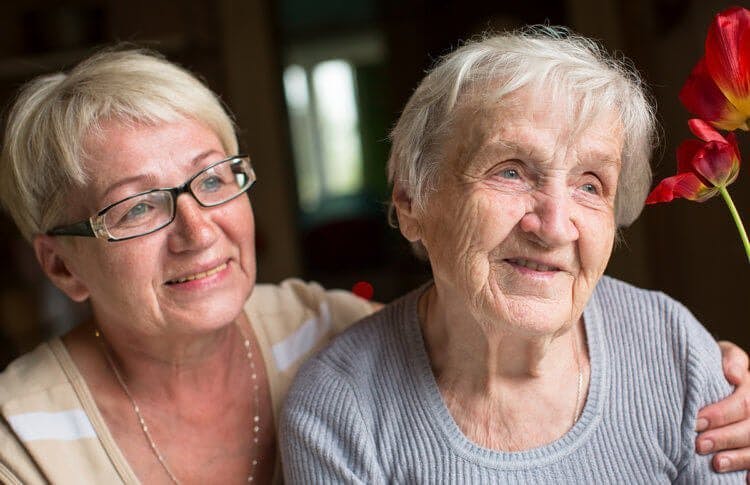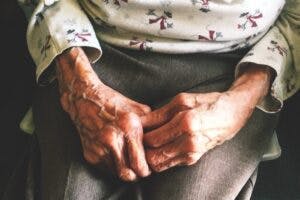What Are the 7 Common Signs of an Aging Parent

Your parents did everything for you.

They ensured you were fed, clothed, and cared for throughout childhood (and for some of us, well into adulthood). They taught you how to brush your teeth, count to one hundred, and how to beat that one level in Space Invaders (you know the one). Everything we are we owe to our parents, and we could spend our whole lives thanking them and it’d still never be enough.
As you get older, you realize your parents do, too. They might not be as involved as they used to be, or they get tired faster. Maybe they can’t walk long distances without sitting down, or they can’t figure out how to use their new TV no matter how many times you explain it to them. Soon, you might begin wondering if you need to move them into your home, or worse – a nursing home or assisted living facility.
But before all that happens, there’s hope – you can provide your parents the care they need without having to move them out of the comforts of their own home, allowing them to retain their independence. Called senior in-home care, the service is designed to keep the elderly as independent as possible while ensuring they have the necessary help whenever needed.
If you are worried about your parents or a loved one, but want them to retain that sense of autonomy, hiring a caregiver may be the best option.
To determine if senior home care is right for your aging parents, read these following steps to see if they are exhibiting any of these signs or symptoms:
Weight Loss/Loss of Appetite
As people age, it’s not uncommon to stop cooking all the time. There are often fewer people in the house than years prior, and cooking for one or two people takes more energy than simply ordering takeout or eating foods that take minimal preparation. But when people stop eating as much as they used to or are losing weight, it could be a sign of depression. Speak with your parents to ensure that everything is okay or if there is something going on that might be cause for concern.
Forgetfulness
Everyone forgets things, no matter what your age is. Your keys, wallet, phone…everything goes missing from time to time, only to remember later where these all-too-important items are. But if your parents are having trouble remembering things that should be easy to remember, such as the route back home to the house they’ve lived in for 20 years, that is cause for alarm and should be taken as a serious warning sign of Alzheimer’s or Dementia.
Poor Personal Hygiene/Cleanliness
Growing older can also mean having less energy to perform the simple daily tasks. If your parents were fastidious in nature and loved to keep a clean house, a dirty house is a warning sign that should be paid attention to immediately. Expired food, piled up dishes, and trash that hasn’t been taken out in weeks are good indicators of a house gone bad, and aging parents often struggle with cleaning like they used to. This can prove dangerous, as a dirty house creates potential hazards, and one misstep on garbage or items on the floor can mean a bad fall and lengthy hospital visit. This goes for personal hygiene as well – disheveled hair, smelly clothes, and days or even weeks without bathing can indicate depression or the physical inability to care properly for oneself. If this sounds like your parents, please get help immediately, as this is a huge red flag of something serious.

Decrease in Activity / Socialization
It’s common to feel less energetic as age creeps on, but there’s a difference between being unable to walk around the block or garden and being completely disinterested, lethargic, or mopey. If your parents are expressing a complete lack of energy and seem down, they can potentially isolate themselves if left untreated, setting themselves up for depression. Combat this by ensuring your parents get the socialization they need, be it from a friend, family member, church, book club, or other sort of social activity.

Mood Changes
While the aforementioned signs and symptoms all indicate depression, there are other mood changes/swings that can occur as well. If your parents are quick to temper, have emotional outbursts that seem to come out of nowhere, or suddenly withdraw, they may be experiencing depression or something more urgent. Observe your parents to see if there is any stimulus that is causing the mood swings; otherwise, urge your parents to seek medical treatment if the mood changes are unexplained.
Problems Driving
Perhaps one of the most sudden indicators of the onset of old age is driving. Older people often get in more car accidents than in prior years. Or they might find they’re accidentally scraping the mailbox on their way out of the garage on a regular basis or backing into other cars in the parking lot. This is dangerous – not only to the driver but to other drivers, cyclists, and pedestrians. Encourage your parents to stop driving on freeways or at night to minimize some risk. If it gets to a point where it is no longer safe for them to drive, a caregiver may be the best option, as they can often drive your parents to and from their daily activities safely.

Mismanaging Finances
Another sign of forgetfulness has some pretty unfortunate consequences – managing finances. Did mom forget to pay taxes? Did dad spend money on something, only to forget where the money went? This can lead to a serious issue, as a nickel missing here or there can quickly add up to thousands of dollars spent in the wrong places. Broach the topic with your parents very carefully, as this is a tender, sensitive issue for any adult. Losing track of money and forgetting to pay bills can be a sign of something serious, like Alzheimer’s or dementia, so be sure to get your parents the help they need as soon as possible.
If you notice any of these signs or symptoms, it may be in your and your loved one’s best interest to consider homecare or hiring a caregiver. By doing this, your senior loved ones will be able to maintain their independence while still receiving the care that they need. This will ensure a longer, happier life for your relatives and provide the rest of your family a peace of mind that their loved ones are well taken care of.
